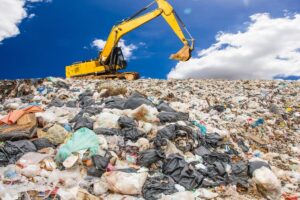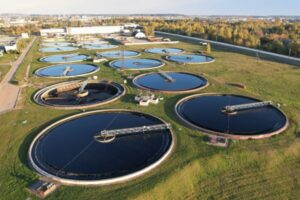Government policies and regulations play a crucial role in shaping the landscape of renewable energy and waste management. Clean Stream Fuels is strategically aligned with numerous key initiatives at the local, state, and federal levels, offering solutions that not only address environmental challenges but also support the goals outlined by these policies for a more sustainable future. Understanding this alignment is vital for government agencies and potential partners alike.
Key Policy Drivers for Renewable Energy and Waste Management
Several key policy areas are driving the adoption of renewable energy technologies and sustainable waste management practices:
- Renewable Portfolio Standards (RPS): Many states have implemented RPS mandates, requiring a certain percentage of electricity to be generated from renewable sources. Biogas produced through Clean Stream Fuels’ Anaerobic Digestion can contribute to meeting these standards.
- Waste Diversion Goals: Governments are increasingly setting targets for diverting waste away from landfills through recycling, composting, and waste-to-energy technologies like Clean Stream Fuels’ HTL and AD processes.
- Greenhouse Gas Emission Reduction Targets: Policies aimed at mitigating climate change often include incentives and regulations that favor renewable energy production and the reduction of methane emissions from landfills, both of which are addressed by Clean Stream Fuels’ solutions.
- Water Quality and Re-use Initiatives: Policies promoting water conservation and wastewater re-use align directly with Clean Stream Fuels’ integrated wastewater treatment and re-use technologies.
- Incentives and Funding Programs: Various government programs offer financial incentives, grants, and tax credits for renewable energy projects and innovative waste management solutions, potentially benefiting Clean Stream Fuels’ partners.
Clean Stream Fuels: Supporting Policy Objectives
Clean Stream Fuels’ technologies and solutions directly support these policy objectives in several ways:
- Renewable Energy Generation: Our HTL process produces biocrude that can be refined into biofuels, and our Anaerobic Digestion process generates biogas, both contributing to a cleaner energy mix.
- Waste Diversion: By converting organic waste and wastewater sludge into valuable resources, we significantly reduce the volume of material sent to landfills.
- Greenhouse Gas Reduction: Capturing methane in AD and producing lower-carbon fuels through HTL help reduce overall greenhouse gas emissions.
- Water Conservation and Re-use: Our wastewater treatment solutions enable the safe and effective re-use of water resources, aligning with water sustainability goals.
Partnering for Policy Alignment and a Sustainable Future
Clean Stream Fuels is committed to working with industries, municipalities, and investors to implement solutions that not only make economic sense but also align with and support key government policies for a more sustainable future. To learn more about how our technologies can help you navigate the evolving regulatory landscape, please contact our team.
#RenewableEnergyPolicy #WasteManagement #Sustainability #GovernmentInitiatives #CleanStreamFuels



